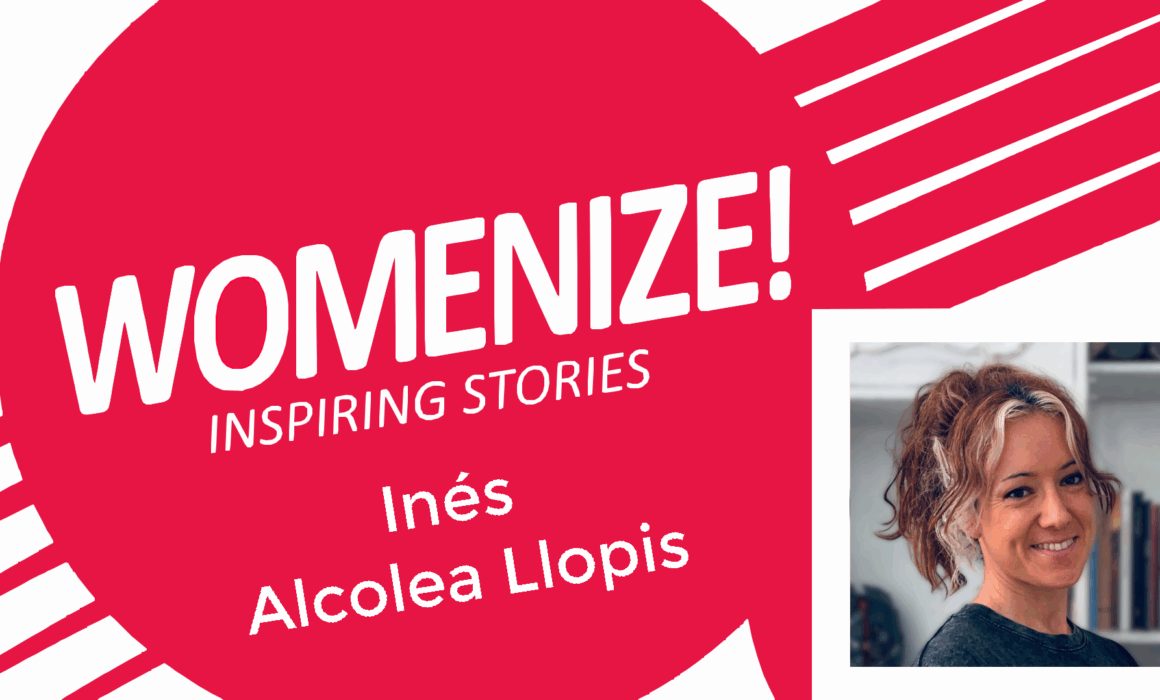Inés Alcolea Llopis – Womenize! – Inspiring Stories
Womenize! – Inspiring Stories is our weekly series featuring inspirational individuals from games and tech. For this edition, we talked to Inés Alcolea Llopis, Writer & Narrative Designer. She speaks about how her background in literature, languages, and diverse experiences shapes her work as a game narrative designer to create inclusive, authentic stories that reflect marginalized perspectives, while balancing creativity with industry realities and mentoring others to tell their genuine, unique stories. Read more about Inés:
Hi Inés! You started studying Translation and Interpreting, then moved into Creative Writing, and now work as a Game Narrative Designer. How has your background with languages and literature influenced the way you create worlds and characters for games?
I have always been linked with literature. As a child, I read a lot, and I also used to write as a way of having fun. But I don’t consider myself a conscious writer until I realized that what I was writing was stories similar to what I read – similar characters, men, and similar stereotypes. And in none of those I could find honest stories where I could feel reflected with honesty. That was when I started looking for stories created by women (books, films, videogames…), and since then, I have been working on developing new references, tropes, and stories from a feminist, LGBTIQ+, and non monogamous prism — the one I was missing.
I also work with video games in PR and Marketing, and I think that this diverse mindset and creative background have supported me a lot to avoid bias and think on a diverse public with diverse needs, and believe it or not, the more empathetic you are outside of the normativity, the more engagement and honesty you get from users.
You’ve worked in both storytelling and marketing. Writing game narratives while also leading PR and communication for big studios. What have been some of the biggest lessons or challenges in combining creativity with strategy, and what moments in your career feel most rewarding so far?
Sometimes the big lesson is disappointing because it confronts your pillars and beliefs with reality – even if I always want to create new references aligned with my beliefs of how diverse the world is, studios and clients want to create campaigns and performances based on facts. So, we need to stick to how we have traditionally worked, and changes come from little steps. This fact brought me a big mindset: we (women and people who are out of the norm) want things to change quickly, as we’re uncomfortable with the configuration of the world, and many things are unfair.
However, changes are slow, and the evolution of society is not simple and fast. Sometimes we find ourselves being discouraged as new waves of traditionalism and fascism are growing, but these are spread over a society where some conversation already exists, and they will not disappear. So, to me, any moment when a studio or client is open to accepting and integrating a diverse mindset is a rewarding moment.
I had the chance of working on a game called Bambas!, creating over 40 characters. The studio contacted me as they wanted to have those characters reflect purely how society is, and they trusted my diverse mindset. So I took many examples from the people I see day-to-day, when I go to the grocery store, or when I go for a walk or to visit my relatives. Being able to transfer that into the ecosystem of a game was very rewarding as I tried just to reflect the people you can find being open-minded and observant with your habitat.
Your stories often explore themes like feminism, LGBTQ+ identities, and other social issues. You also mentor and teach new creators. How do you see games as a space to give voice to different experiences, and what advice would you share with young writers who want their stories to make a difference?
I always tell my students to trust their realities and to tell the stories they’re genuine to. Sometimes I have conversations with white heterosexual men, and they think we live in an era where their stories have no value (well…. we could discuss it). To this argument, I always ask them to think about proper stories about themselves that any other person could have never explored. In that genunity we find universality even if it sounds contradictory, as everyone has their own unique interest and vision, and these are the stories that will generate a hook. I explore feminism and LGBTIQ+ realities as unfortunately something as big as that is genuine and unique, but I also explore them as horror stories, as I find it very interesting to reflect on my discrepancy with a tradition that contains my freedom. I find in this mindset a way to be free and have fun with the discomfort of living in a world that has no room for my way of being.
I am very happy we’re playing more titles lately that have genuine mechanics or topics that explore the limits of normality. I think that new waves of thinking are daring to appear, and I’m very excited about what they will bring.

